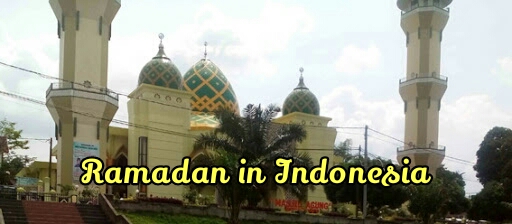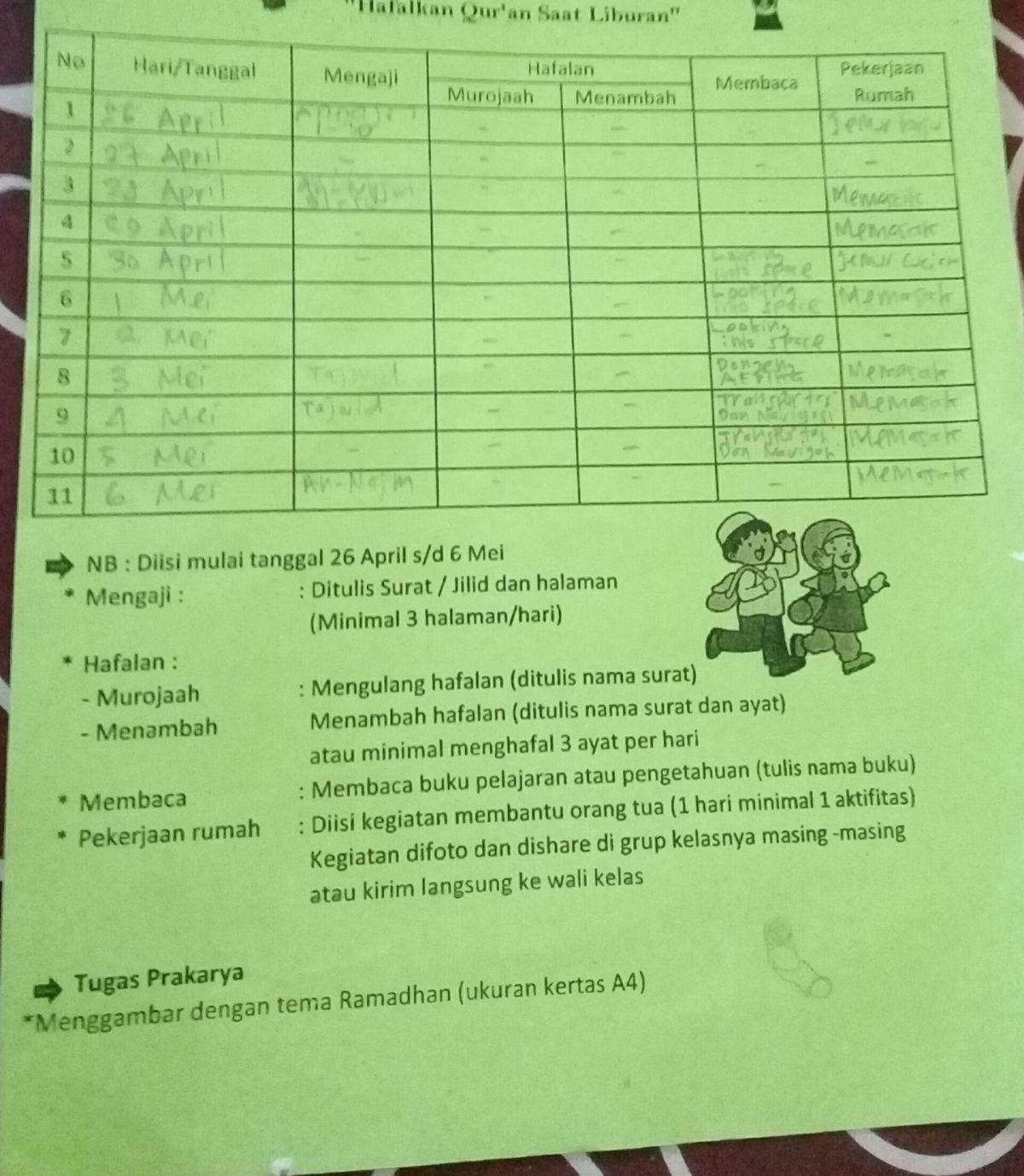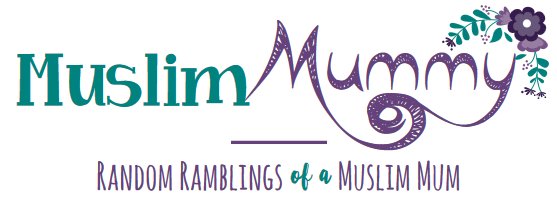A few years ago I started off a series showing what Ramadan is like around the world. I featured Ramadan in Egypt, Ramadan in Pakistan, and Ramadan in Turkey.
Today I am pleased to be able to share what Ramadan in Indonesia is like through this guest post by sister Diah Dwi Arti.

Ramadan is here. Subhanallah. How wonderful! We will be fasting for about 13 hours.
What’s so special about Ramadan in Indonesia?
Indonesia is one of the largest muslim population around the globe. Historically, Ramadan is very special because Indonesia’s independence was proclaimed in Ramadan. That’s why the founding fathers of the nation included the words “By the grace of God Almighty and impelled by the noble desire to live a free national life, the people of Indonesia hereby declare their independence” in the 1945 Constitution.
Economically, Ramadan brings many changes in life. People tend to consume more during Ramadan, so the sales will rise.
Before Ramadan Comes You May See This
What’s so unique about the approaching of Ramadan is when some certain products start to show on TV commercials. The most popular ones are syrup and sarong. When you see those commercials on TV it is like you hear an alarm ringing. “Oh, Ramadan is really coming!” I did that too all this time. LOL.
Also when the fasting month is closer, we usually get for free a ‘fasting and prayer schedule’, a time table printed on a kind of one sheet calendar you can hang it on a wall informs you about the time of each salah and the time of iftar for 30 days. Who give the schedule? It could be business campaigns, mass organization or political party.
Ramadan At School
The first day of Ramadan is usually a day-off for almost all commercial businesses and government offices. Students get longer day-offs, it ranges from several days to a full week. Working hours are shortened and so are the school hours.
Students usually go to ‘Pondok Ramadan’ or Short Islamic Boarding School during Ramadan for 1 or 2 days. They learn about salah, dua, fasting, recite the Quran, murajaah (memorizing the Quran), watch Islamic movies, do some crafts and many more. They also do iftar together at school and even do taraweeh salah and have sahoor together.
After Pondok Ramadan there usually comes another day-offs to celebrate Eid El-Fitr. Long holiday, yes. That’s why some schools provide projects for their students to complete during Ramadan.

This kind of sheet contains what to do during Ramadan. Students have to maintain their ibadah including salah, recite the Quran, fasting itself and other good deeds.
Taraweeh And Sahoor
Taraweeh is always special. Here in Indonesia we do taraweeh right after isha salah at masjids. There are people who do 11 rakaah of taraweeh plus witir salah, there are also people who do 23 rakaah. It’s free to follow which one. Masjids are always merrier with jamaah and even children!
After finishing taraweeh some people will gather to recite the Holy Quran together sometimes up to midnight. Moms are also allowed to do this but in different place. They usually finish one juz each night.
At sahoor time, there usually a group of mobile band. The group walks around the neighbourhood playing ‘music’ comes from rhytmical beaten bamboo stems to wake people up. You will also hear the ‘song’, it sounds “Sahoooor…sahoooor…” It really helps moms like me to wake up and prepare the meal.
Iftar
Alhamdulillah, iftar is really easy to do here. Masjids provide iftar meal for free. You can just stop at one masjid and you’ll be served with iftar meal. Snacks and dates are popular. Some masjids even provide rice in boxes for iftar.
At our local masjid we arrange a schedule to serve the meal during Ramadan. Each family usually brings snacks or drinks and leave them at masjid so that anyone can have them for iftar. My kids even helped me with the drinks last Ramadan. We made 20 cups of drinks.
Not only masjids, some shopping venues also providing iftar meal or iftar drink. A glass of water to break the fast is, masha Allah, delicious!
During Ramadan, we usually hold a ‘Buka Puasa Bersama’ or iftar together with extended family or friends or business partners at home or restaurants. It is always fun to do it as we gather and talk and eat iftar.
The Last Days of Ramadan
These are the most hectic days for most of us. There are 3 big things to do: itikaf or stay at masjids instead of homes in the last days of Ramadan, go shopping for Eid and take a journey back to home town.
People do itikaf from 21 until the end of Ramadan. Some can really do the right itikaf which means abandon the house and stay at masjids. They go to work as usual from masjids and when the work is done they go back to masjids again. But, for some people they go to masjids at night after taraweeh salah and go back to home for sahoor. This group of people do itikaf only at nights due to their condition.
Other than itikaf, some people do shopping for Eid. You can see many people at the mall buying new clothes and other things. It is a tradition here to wear new clothes on Eid.
The other big thing is the journey back to home town or ‘mudik’. People from big cities move to their home town by trains, planes, ships, cars, buses, even motorbikes. It is really a huge ‘migration’ when people spending all their efforts to see their parents and relatives at their home town. Trapped for hours in traffic is no big deal as long as they can visit their family. For me, it will be the same insha Allah. I will go home to see my mom and visit my dad’s grave insha Allah.
Eid El-Fitr
It is the final end of fasting. People celebrate the Eid in happiness. We usually have an Eid Salah at majids or open spaces such as town squares. After that we visit neighbours, elders, family members and friends to ask for forgiveness. There are always special dishes at Eid. Opor Ayam and Ketupat (chicken curry and rice in coconut leaves) are usually the stars. Cookies are also served for the guests.Well, that is what Ramadan in Indonesia looks like. What about yours?
Author Bio:
Diah loves her family and she lives for them. She is a full-time stay at home mom and does domestic jobs every day, and loves it. For her alter ego, she gives herself a chance to spread her words to the world through blogging. You can find her blogging at www.damarojat.com (Indonesian) and mommysnextstep.blogspot.com (English)
You can also find her on Facebook/Twitter/Instagram/Pinterest: @diahdwiarti

Mashallah, you can really see all the benefits of living in a country that incorporates the Islamic holidays. Jazkallah Khair for sharing, Ramadan Mubarak
Ma shaa Allah very beautiful! I live in India and here in our place we have many similarities like yours… They provide us with Fasting and Prayer schedule in shopping centres and also there are iftar parties, families send iftar stuff to masjid.. Etc. Alhamdulillah! This feels so good 🙂
Masha’Allah sounds all so exciting!! it reminded me of all the adverts you get on tv in the UK in the lead up to any holiday! I can imagine a real buzz & a feeling of togetherness, which is hard to get in a non Muslim country.
IT is so interesting hearing how Ramadan is in different countries, especially because in the UK it can be difficult to feel that buzz when you are alone or not around many muslims!
Aishah x
Alhamdulillaah. Jazakillah khoir for posting this.
Mashallah what a fantastic series of showing what Ramadan is like around the world! Living in the west, I love seeing what life is like globally. I think that the shops giving out something for iftar is such a beautiful gesture mashallah!
It’s so interesting to know what Ramadan is like in other countries. Thank you for sharing!
I absolutely love how the kids have to get involved with the camps and classes. Its so amazing and so much needed for our children these days.
I think Ramadan in a Muslim country is amazingly beautiful and very different from other countries. The atmosphere is different. Thank you for sharing 🙂
Ma-shaa-Allah
Every country got different cultures & way of celebrating the month of Ramadan but it’s always a pleasure to see that how Muslim Ummah make special arrangements to follow every rituals in this holy month.
Ramadan is a blessing for the Muslims all over the world.
We must carry out the activities to transfer its values to our next generations.